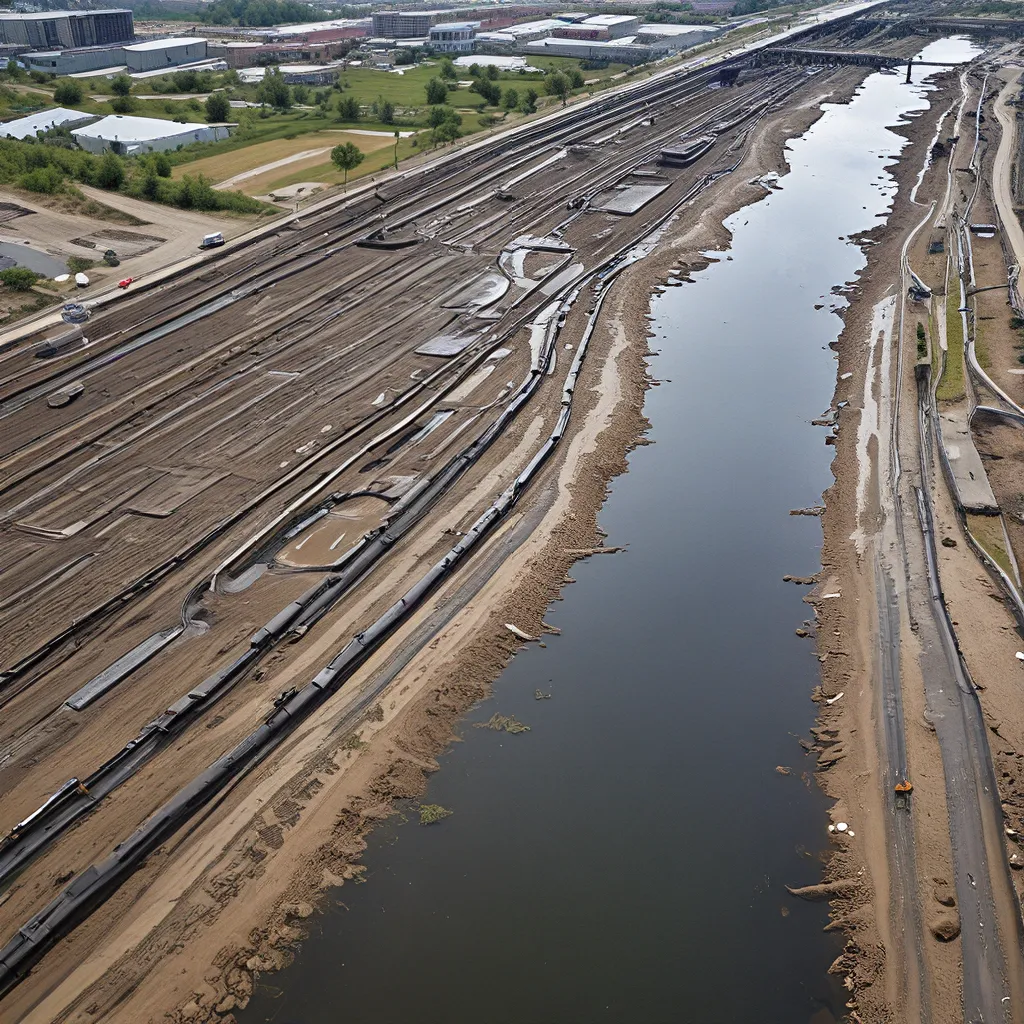
As an environmental enthusiast, I’ve always been fascinated by the intricate web of connections that exist in our urban ecosystems. One area that has really captured my attention is the relationship between wastewater management, energy consumption, and land use – a topic that is both complex and critical to the sustainability of our cities.
The Wastewater Conundrum
Let’s start by acknowledging the elephant in the room: wastewater treatment is not the most glamorous of topics. It’s often overlooked or relegated to the background, but the truth is, it plays a vital role in maintaining the health and well-being of our communities. Every time we flush a toilet, take a shower, or do the dishes, we’re contributing to the vast network of pipes, pumps, and treatment facilities that keep our cities running.
But the story doesn’t end there. Wastewater treatment is not just about cleaning the water – it’s also about energy consumption and resource recovery. The processes involved in treating wastewater can be incredibly energy-intensive, requiring large amounts of electricity to power the various stages of treatment. And the byproducts of this treatment, such as sludge and biogas, can actually be leveraged as valuable energy resources if properly managed.
The Urban Nexus
This is where the concept of the urban nexus comes into play. The urban nexus is the idea that these seemingly disparate systems – water, energy, and land use – are actually deeply interconnected, and that by understanding and optimizing these connections, we can create more sustainable and resilient cities.
For example, let’s consider the role of land use in wastewater management. The location and design of wastewater treatment plants can have a significant impact on the energy required for water pumping and transport. By strategically positioning these facilities and integrating them with urban planning, we can minimize the energy footprint and maximize the resource recovery potential.
But the connections don’t stop there. Wastewater treatment can also play a role in urban agriculture and green infrastructure. The nutrients and water recovered from the wastewater treatment process can be used to irrigate urban farms and green spaces, reducing the demand for freshwater and creating a more circular economy.
Embracing the Complexity
Now, I know what you’re thinking: “This all sounds great, but it must be incredibly complex to implement!” And you’d be absolutely right. The urban nexus is a complex web of interconnected systems, each with its own set of challenges and considerations.
But that’s precisely why I find this topic so fascinating. Wastewater management is not just about water treatment – it’s about energy efficiency, resource recovery, urban planning, and environmental sustainability. It’s a problem that requires a holistic, systems-level approach, and that’s where the real opportunities for innovation and progress lie.
The Power of Collaboration
One of the key factors in successfully navigating the urban nexus is collaboration. Wastewater treatment is not the responsibility of a single entity or department – it involves utilities, urban planners, policymakers, researchers, and community members, all working together to find integrated solutions.
Alpha Wastewater, for example, is a company that specializes in wastewater treatment services and resource recovery. They’ve recognized the importance of the urban nexus and have been working with municipalities and researchers to develop innovative approaches to wastewater management that optimize energy efficiency and maximize resource recovery.
The Future of Wastewater Management
As I look to the future, I’m excited to see how the field of wastewater management will continue to evolve. Emerging technologies, such as advanced membrane filtration and anaerobic digestion, hold the promise of higher efficiency and greater resource recovery. And with the growing focus on sustainability and circular economy principles, I believe we’ll see wastewater treatment play an increasingly central role in urban planning and environmental stewardship.
Of course, there will still be challenges to overcome. Funding, regulatory barriers, and public perception are just a few of the hurdles that wastewater management professionals will need to navigate. But I’m confident that with collaboration, innovation, and a systems-level perspective, we can create more sustainable and resilient cities that truly embrace the urban nexus.
Conclusion: Unlocking the Potential
So, there you have it – a deep dive into the fascinating world of wastewater management and the urban nexus. It’s a topic that may not be the most glamorous, but it’s one that is absolutely crucial to the health and well-being of our communities. By understanding these interconnected systems and working together to find integrated solutions, I believe we can unlock the untapped potential of wastewater treatment and create a more sustainable future for us all.